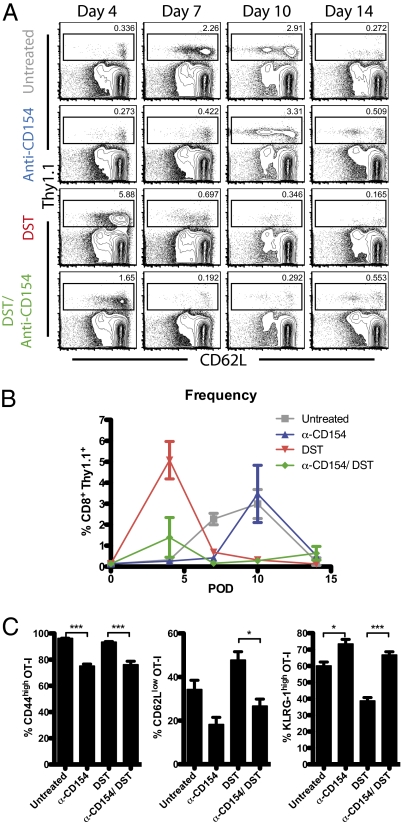Fig. 2.
CD154 blockade delays expansion of antigen-specific CD8+ T cells but does not alter activation status at peak of response. Mice were treated as described in Fig. 1 and killed at the indicated time points. (A) Concatenated flow plots of CD8+ splenocytes. Gates shown are on donor-reactive CD8+ (Thy1.1+) T cells. (B) Frequencies of donor-reactive CD8+ splenocytes are shown. OT-I T-cell populations in untreated mice peaked at days 7–10 with 2.27% ± 0.27% and 2.98% ± 0.69%, respectively. Compared with untreated controls, anti-CD154 treatment delayed expansion of T cells (D10: 3.47% ± 1.37%), whereas DST accelerated expansion of OT-I T cells (D4: 0.32% ± 0.04% vs. 5.08% ± 0.98%; P = 0.006). Combined treatment minimally expanded T cells (D4: 1.39% ± 0.95%). (C) Activation markers on OT-I T cells on day 7 in the spleen. CD40/CD154 blockade reduced CD44 and CD62L up-regulation, while promoting an increase in KLRG-1 expression. Data are summarized from three experiments with three mice per group. Values are mean ± SEM. *P < 0.05; ***P < 0.001.

